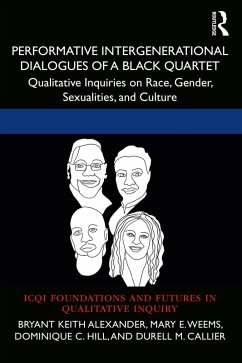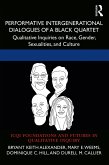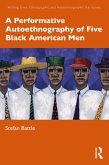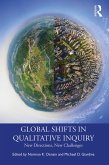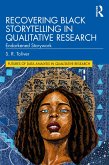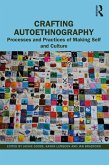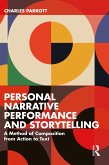Dieser Download kann aus rechtlichen Gründen nur mit Rechnungsadresse in A, B, BG, CY, CZ, D, DK, EW, E, FIN, F, GR, HR, H, IRL, I, LT, L, LR, M, NL, PL, P, R, S, SLO, SK ausgeliefert werden.
Hinweis: Dieser Artikel kann nur an eine deutsche Lieferadresse ausgeliefert werden.
"This masterfully written intergenerational dialogue reminds me that Sankofa, the Adinkra symbolizing the notion of "go back and get it," is alive and well! This text beautifully captures the interconnectedness of history and futurity as dual sites of liberation for Black, queer, gender expansive scholar/activists charting their territory in the sphere of world-making. To remember and return is an act of resistance that honors the ancestors who laid the very path for our existence. Radically imagining new futures in the now offers reprieve from our present and rhetorically constructs the free future within which we are already alive and well. May you find yourself peppered throughout these lines in a moment of inspiration, love, and unapologetic brilliance." - Amber Johnson, Professor of Communication, Interim Vice President of the Division for Diversity and Innovative Community Engagement, Saint Louis University, USA.
"Across generations, critical love languages, and literary genres, Alexander, Weems, Hill, and Callier invite the reader on a journey of witnessing, revelations, and reverence of Blackness. Speaking with and to liberated souls and souls under siege, this beautiful quartet operates as a siren of possibilities as they collectively wrestle with new ways of knowing through intimate expressions of self and re-membering. This riveting collection is a must-read for anyone interested in dialogic performance, freedom-making artistry, and celebrations of Blackness." -- Sharrell D. Luckett, Associate Professor of Drama & Performance Studies, Director of the Weinberger Center for Drama & Playwriting, University of Cincinnati, USA, and Director, Black Acting Methods Studio.
"Performative Intergenerational Dialogues of a Black Quartet is an empowering rollercoaster that evokes our past experiences, questions our current crises, and sketches out potential possibilities for our future. Through interactive poetry, prose, drama, rhythm, and rhyme that pop off the page, I found myself called into responding as a reader who is remembering Blackness, revisiting parallel experiences, and rethinking my role in the creation of Black futurity. This Black Quartet shares the formula for tough skin in Hill's narration of "groove(ing)," listens to the voices of our ancestors in Alexander's "Black Notes", expands Callier's que(e)ry beyond sexuality, and becomes transformative in Weems display of how form and content can spread out across the page to interrupt and disrupt our current norms, while also encouraging new growth around old wounds. Each author masterfully unpacks the liminal space between everyday Black life and the performance of intellectual labor as they draw upon the power of storytelling to teach readers how to heal from cultural crises and activate our imagination in an embodied way." -- Rachel N. Hastings. Professor of Communication, MiraCosta College, USA, and the Director of the North County Higher Education Alliance.

